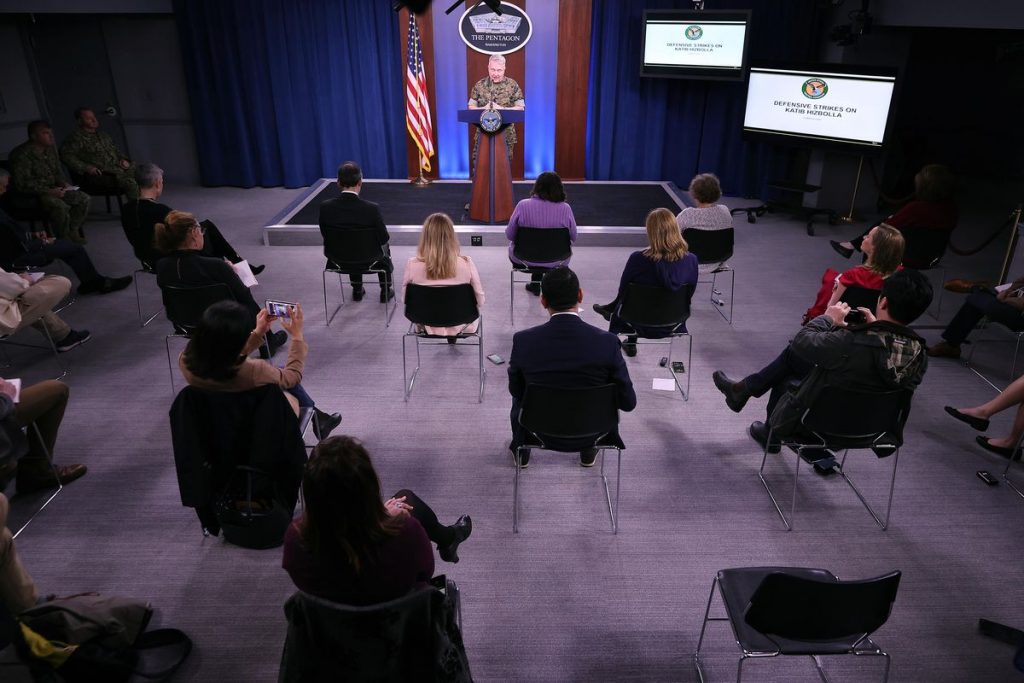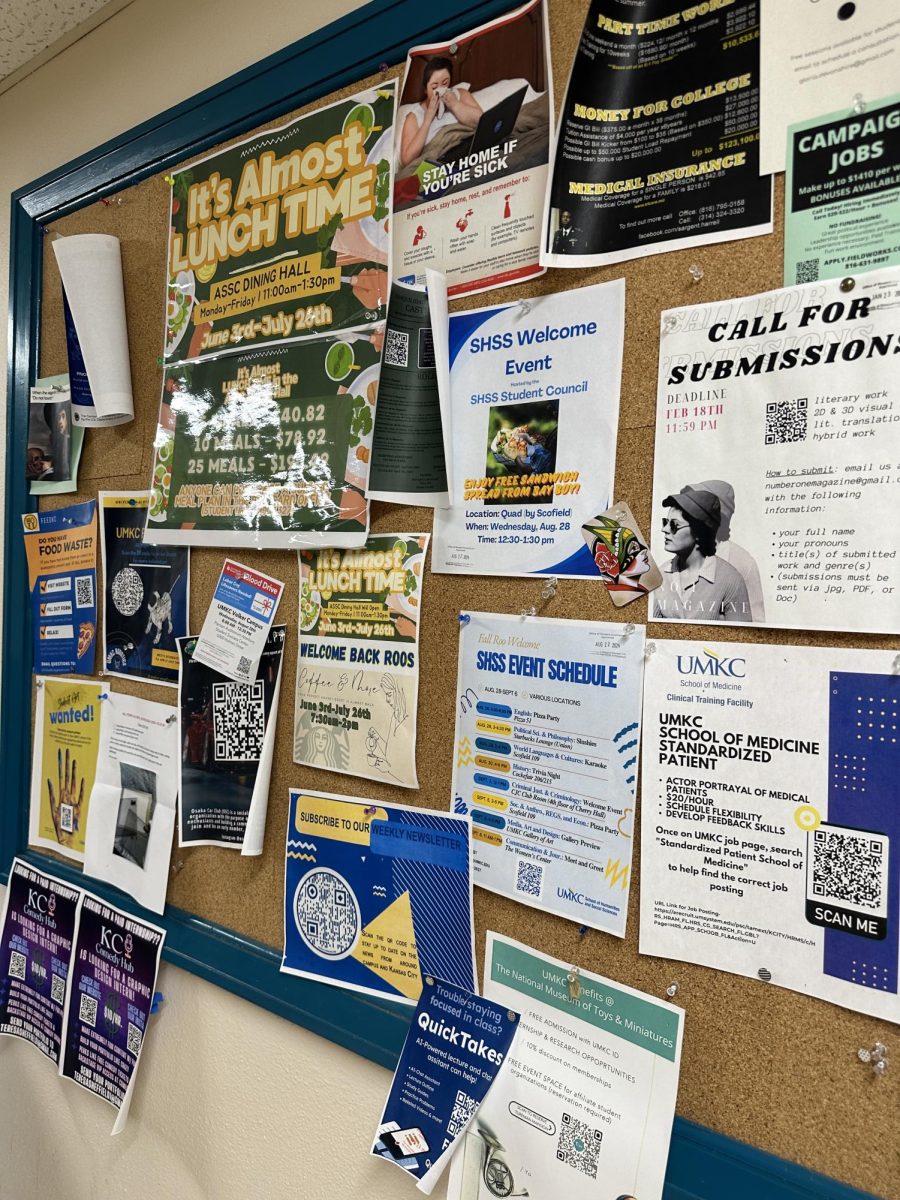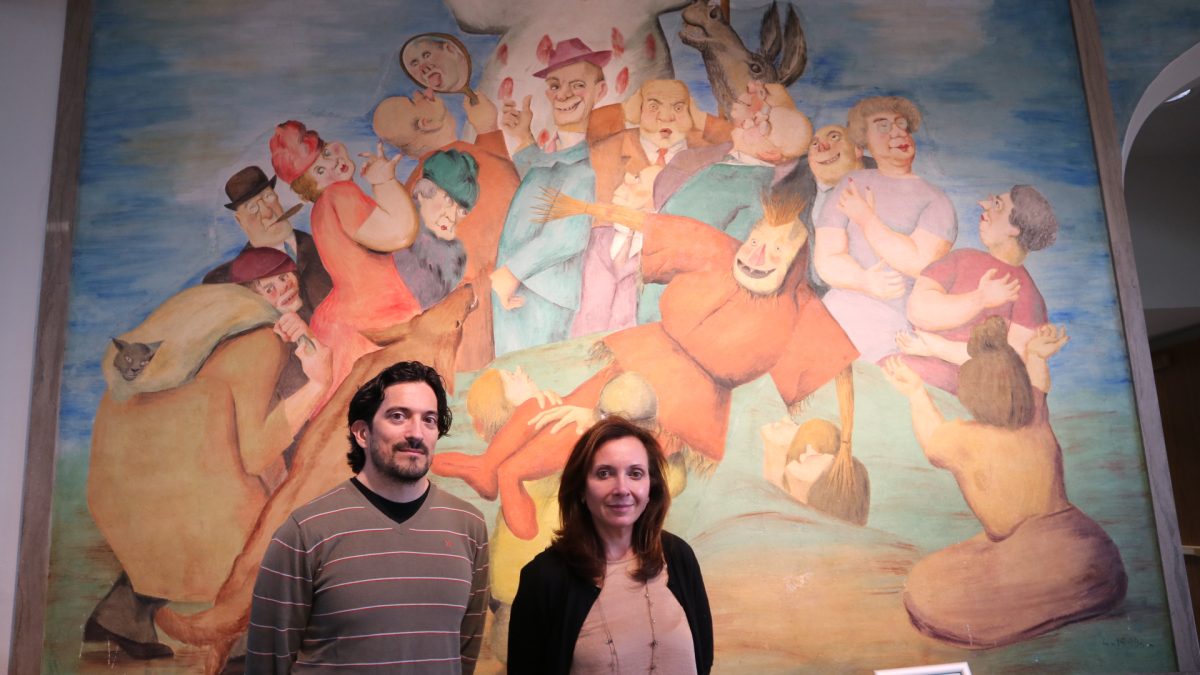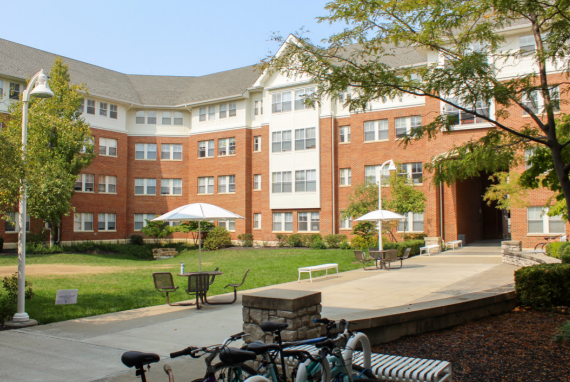To unite as a country by distancing ourselves from each other seems paradoxical, but that’s exactly what we must do amidst the coronavirus pandemic.
Obviously, COVID-19 (the disease caused by the current strain of coronavirus) is spread through human interaction. The simple concept of “social distancing” has been introduced to help limit personal contact, and therefore stifle the spread of the disease.
For example, the Centers for Disease Control and Prevention (CDC) has updated its website for suggestions regarding social distancing.
“Large events and mass gatherings can contribute to the spread of COVID-19 in the United States via travelers who attend these events and introduce the virus to new communities,” wrote the CDC on March 15. “Therefore, CDC, in accordance with its guidance for large events and mass gatherings, recommends that for the next 8 weeks, organizers (whether groups or individuals) cancel or postpone in-person events that consist of 50 people or more throughout the United States.”
President Trump took the CDC’s recommendation one step further in a briefing at the White House on Monday, where he suggested that for at least the next two weeks, Americans should avoid groups of more than 10 people. Locally, Mayor of Kansas City Quinton Lucas has banned most gatherings of 10 or more in the city.
Guidelines like these are the reason UMKC has canceled face-to-face coursework for the remainder of the semester. They’re the reason businesses are closing and major events are being called off, like Coachella, March Madness and virtually all sporting events, even religious gatherings. The cancelations help enforce social distancing.
But beyond avoiding large, scheduled gatherings, social distancing also calls for people to simply limit movement, stay at home whenever possible, and remain six feet from other people when an interaction is necessary.
The fact that these suggestions – if adhered to – will drastically affect the day-to-day lives of every American raises an important question: what obligation do you have to follow these guidelines?
The temptation, especially for the young and healthy, is to carry on as if nothing has changed. Life feels much easier if we ignore the coronavirus chaos that has erupted all around us.
But there does exist an obligation to socially distance ourselves from one another. Social distancing is not about individual welfare but rather the welfare of the collective. We, as individuals, have an opportunity to literally save lives in the community. It’s not about you, it’s about those you could potentially infect, especially the elderly and immunocompromised.
There are those who claim individual action won’t do much and that coronavirus will spread regardless of how we behave. This is, to some extent, true. However, social distancing is not about stopping the virus in its tracks, it’s about slowing the spread and “flattening the curve.”
The “curve” refers to the projected number of people who will contract COVID-19 over a period of time. The curve takes on different shapes depending on the virus’s infection rate.
One of the major problems with a viral disease like COVID-19 is that – if left unchecked – it will spread at an exponential rate, resulting in a peak in the curve. The peak represents a large number of individuals getting infected over a short period of time. If this happens, the American health care system will exceed capacity, and those infected by the disease will be unable to receive proper treatment.
This is exactly what happened in Italy, where confirmed cases of COVID-19 doubled from 10,000 to 20,000 between March 11 and March 15. The country’s health care infrastructure was overwhelmed, which, in part, contributed to Italy’s unusually high COVID-19 death rate, which was reported by PBS to be over 7% or double the global average.
Protective measures like social distancing help prevent a peak in coronavirus infections by slowing down the rate at which people get sick. This is what’s referred to as “flattening the curve.” Ideally, a flatter curve allows the healthcare system to treat infected individuals with proper care.
To carry on as if a potentially fatal disease is not spreading throughout the United States is selfish. Each and every individual can make decisions to help curb the transmission of COVID-19. And as socially responsible and morally conscious individuals, we all have an obligation to do so.
Please, practice social distancing. Don’t contribute to the spread of coronavirus. Sacrifice your social outings, overlook that $50 flight to Florida, and consider the elderly and those with higher health risks. Help flatten the curve and help save lives.









mark alan johnson • Mar 26, 2020 at 3:28 pm
I am about to share a position that is not popular and is opposed to the concept of social distancing. I oppose it not because I want people to die rather I want people to lie. I oppose the concept of social distancing because it is like a slow death that it is worse than the actual disease. As a society, we are preaching the concept of cutting our noses despite our faces. I use this term because we are going contrary to what we need. Human beings are created to be social forces of change and harmony in the world, but how can we come together as a society if we are distant from each other.
Before Corona, as a society, we had difficulty trying to get to know our neighbor- now, I fear that the problem may increase. The forgotten group of people in this debate are the people who struggle with loneliness and depression. There is no acknowledgment of that fact. When a person who struggles with depression has the added burden of isolation plus economic difficulty if any, plus the fear of a dreadful disease, it only compounds and deepens their mental wounds.
I am upset (putting it nicely) about how the media forgets about people who have mental disorders. Granted, we want everyone to live, but what difference does it make if a person lives, if the quality of their life deteriorates to nothing.
Jason Stuart • Apr 7, 2020 at 9:28 am
Mr Johnson’s outlook seems fundamentally flawed because it’s predicated on the assumption that social distancing is the same as total isolation. Any consequences that arises from our collective sacrifice for just a few short weeks by far outweighs the other. If you truly believe in such absurdity then you would take your family down and volunteer to get infected, so you could hurry up and get it over with because the social distancing is asking way too much of you
margaret brommelsiek • Mar 18, 2020 at 3:34 pm
Thank you for this thoughtful article. It is so important that all of us practice social distancing in support of one another.